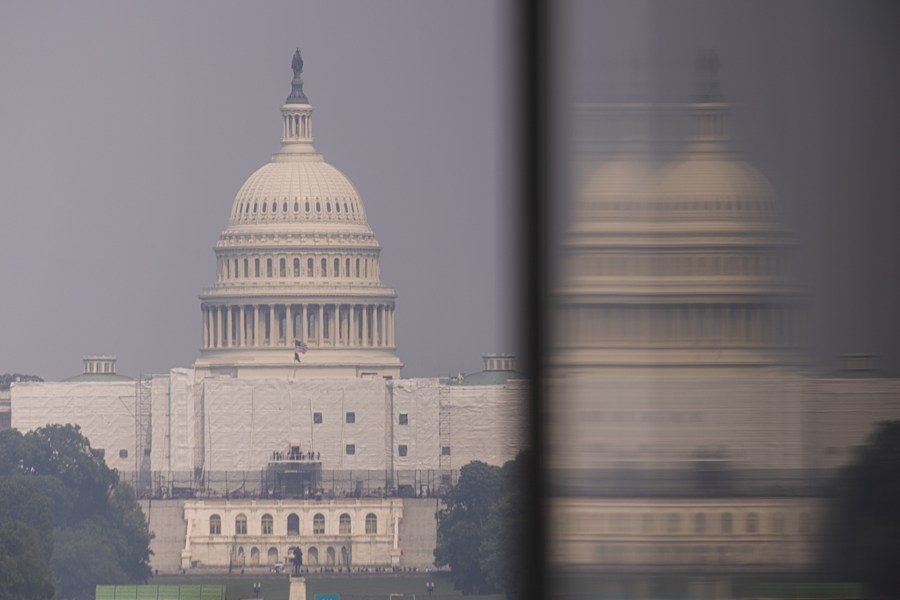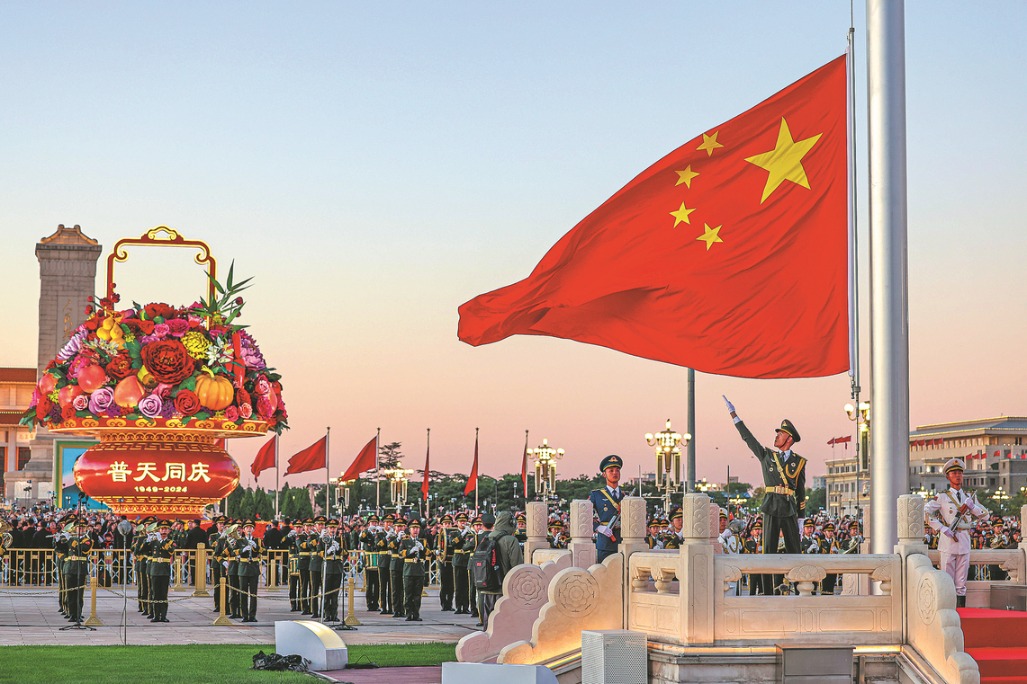G7 approach to Ukraine crisis is dangerous


The Russia-Ukraine conflict is high on the agenda of the ongoing G7 Summit in Italy. However, no one should expect the summit to help resolve the conflict and restore lasting peace in Eurasia.
The reason is quite clear. The G7 leaders, who are meeting from Thursday to Saturday, are busy raising funds, and making efforts to use the proceeds from Russia's frozen assets, to finance Ukraine and escalate as well as prolong the conflict. But their aim of weakening, if not vanquishing, Russia is seen as unattainable even by many Western military and foreign policy experts.
Their latest effort to escalate the conflict is the "permission" Washington and several European capitals have given Ukraine to use the long-range missiles they have supplied to strike targets within Russia. They had prevented Ukraine from doing so over the past two years for fear of triggering a stronger response from Russia and spreading the conflict to Europe.
While no one is sure about G7's strategy to defeat Russia, what is certain is there will be more deaths and destruction in both Ukraine and Russia and the risk of the conflict spreading will increase. This could lead to a nuclear war and even a third world war if G7 leaders continue to refuse to seek an immediate ceasefire.
When I asked a panel at the European Policy Center this week why the conflict which many expected to last only a few months has continued so long, one expert said the European Union should help Ukraine defeat Russia because if Europe lets Russian President Vladimir Putin win, Russia won't stop at Ukraine.
That is sheer speculation and brainwashing by Western politicians. If you read the letter Putin wrote to the United States and NATO in January 2022, you will realize that he raised genuine and legitimate security concerns over NATO's continued eastward expansion. Yet the US and NATO, in their reply, deliberately ignored such concerns.
Back in December 2022, even French President Emmanuel Macron had said that an "essential point" in any peace talks on the Russia-Ukraine conflict should be how to provide security "guarantee to Russia" given Moscow's concerns over NATO's expansion.
Given the current political mood, I doubt whether any G7 leaders will have the courage to mention Russia's security concerns at the summit. Instead, they will continue to dodge the question or pretend it is a non-issue.
The timing of this year's G7 is ominous. Except for Italian Prime Minister Giorgia Meloni whose Brothers of Italy party won a major victory in last week's European Parliament election, Macron's Renaissance Party and German Chancellor Olaf Scholz's three coalition parties — the Social Democrats, the Greens and the Free Democrats — all suffered major defeats, forcing Macron to call snap polls on June 30.
In the US, President Joe Biden and his predecessor Donald Trump are neck and neck in the presidential race less than five months before the presidential election despite Trump being found guilty on 34 charges by a New York court.
In the United Kingdom, Prime Minister Rishi Sunak is trailing behind his rival and Labour Party leader Keir Starmer in opinion polls just three weeks before the national elections. In Japan, voter support for Prime Minister Fumio Kishida has fallen to 21 percent, the lowest since he took office in 2021, while in Canada, only 17 percent of those surveyed said they think Prime Minister Justin Trudeau should continue as Liberal Party leader in the next election.
All this indicates that the G7 leaders have gathered in Italy on weak platforms and are distracted by their domestic problems.
The G7 also has a huge credibility crisis given its blatant double standard and hypocrisy on the Israel-Palestine conflict. It will be much harder for G7 leaders, therefore, to hijack the "international community" and lecture the world about their "rules-based order".
The G7, a Cold War legacy, believes that inviting countries such as Brazil and India to the summit will increase its relevance. The G7 can become relevant only by listening to the rest of the world, which wants an immediate and permanent cease-fire in both the Russia-Ukraine and Middle East conflicts, and addressing their issues through dialogue and diplomacy.
The author is chief of China Daily EU Bureau based in Brussels.
































